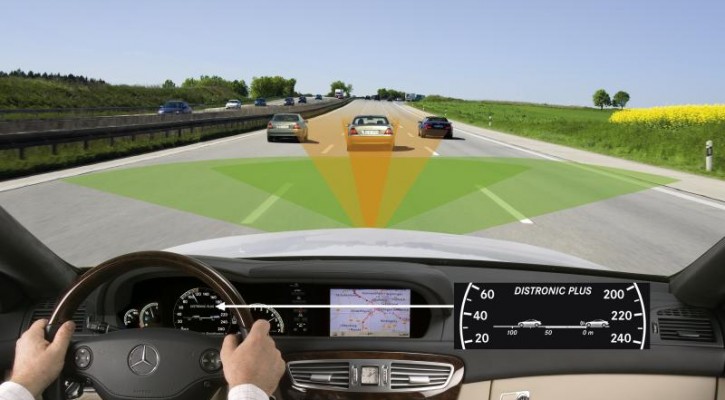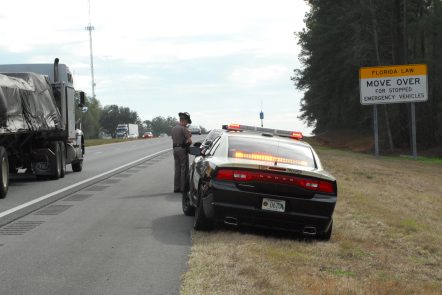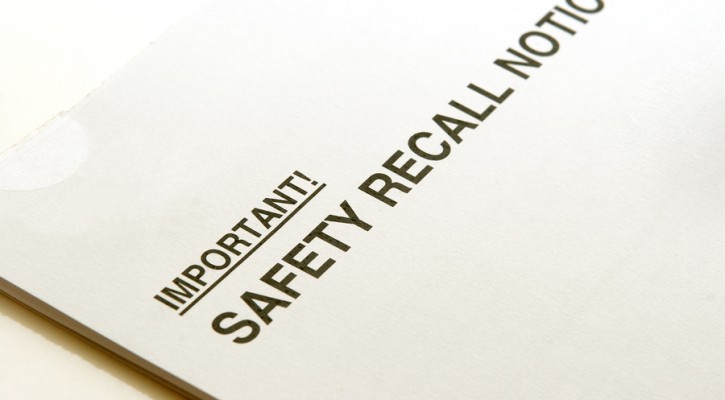Category Archive: Safety

Congress Looks To Reverse Rules Preventing Drowsy Driving By Truckers
June 5, 2014
In response to an 18 percent increase in large truck fatalities since 2009, the Federal Motor Carrier Safety Administration (FMCSA) enacted new rules last year to require adequate rest periods for truckers similar to the rules that have long been in place for airline pilots and railroad engineers.
Now, in response to pressure from trucking lobbyists, some in congress are considering reversing those rules. The US Department of Transportation is seeking help from the public to prevent the roll-back of those rules. Read more: http://www.transportation.gov/fastlane/hours-service-rule-protects-families-fatigued-drivers

Collision-Avoidance Technology Will Fundamentally Change Auto Industry
June 4, 2014
Until now, automotive safety technology has primarily focused on protecting the occupants inside a vehicle in the event of a crash but, with new collision-avoidance technology, the focus is changing to avoid the crash altogether. This technology won’t only affect the vehicle but also the industry that has built up around motor vehicle crashes. Will insurance, lawyers, and body shops no longer be needed? Read more: Who Needs Auto Insurance?
Photo compliments of Daimler.com

Move Over Law: Life Saver Or Income Generator
May 21, 2014
A recent Atlanta TV station report interviewed Atlanta area drivers who received tickets for failure to comply with Georgia’s Move Over Law and seems to question the motives behind the enforcement of that law, especially in certain Atlanta metro counties.
For those unfamiliar with this law and, according to a 2007 survey, that’s approximately 70% of you, the Move Over Law was designed to protect emergency workers and first responders who are working on the side of the roadway. Since 1999, 213 law enforcement officers have been struck and killed while aiding motorists on the side of the roadway, an average of more than one per month.
The need for the law was re-emphasized recently by the death of a veteran Florida Highway Patrol officer and mother of a four year old boy. While working a crash scene on a Florida interstate, Trooper Chelsea Richard was struck and killed when a pickup truck traveled onto the shoulder of the road and struck her patrol vehicle. A tow truck operator and pedestrian were also killed.
A version of the Move Over Law has been enacted in all 50 states and requires motorists who encounter an emergency vehicle on the side of the roadway, with its emergency lights flashing, to move over into a lane away from that of the emergency vehicle or, if it’s impossible to move over into the opposite lane, to slow down to a safe speed. Kansas passed the first Move Over Law in 2000, and Hawaii became the 50th state to enact a version of the law in 2012.
The problem with the law, as written in some states, is that it is vaguely worded. Georgia’s law requires that motorists who are unable to move over into another lane “reduce the speed of the motor vehicle to a reasonable and proper speed for the existing road and traffic conditions, which speed shall be less than the posted speed limit, and be prepared to stop.”
The drivers cited in the TV report claim that they had slowed down but were issued tickets anyway. While they felt that the purpose of the law is necessary, they felt it was being misinterpreted by some law enforcement agencies and some, based on the number of tickets written in certain Georgia counties, feel that those counties are subverting the intent of the law to generate extra income for county coffers.
Other state Move Over Laws are less vague. Florida’s law requires that motorists who are unable to move over into another lane “Shall slow to a speed that is 20 miles per hour less than the posted speed limit when the posted speed limit is 25 miles per hour or greater; or travel at 5 miles per hour when the posted speed limit is 20 miles per hour or less. That requirement is easily understood by motorists and can be measured by law enforcement officers.
Florida’s law not only includes emergency vehicles such as police and fire but also tow trucks and a recently passed amendment to the law will include sanitation vehicles (garbage and recycling trucks) and utility service vehicles (water, gas, electric, or cable) that are parked by the side of the road with emergency lights flashing. Basically, in Florida, if you see any vehicle parked by the side of the road with blue, red, or amber lights flashing, you should treat it as an emergency vehicle and know that the Move Over Law applies.

Wrong-Way Driving Solutions
May 20, 2014
The high incidents of traffic collisions involving wrong-way drivers have traffic engineers nationwide searching for solutions. Engineers in Texas and Arizona are testing a new system that warns other drivers of a wrong-way driver ahead. Read more: Deadly wrong-way crashes vexing Arizona officials

Commercial Drivers Must Be Examined By A “Certified” Physician
May 13, 2014
Beginning May 27, 2014, to acquire or update a medical certificate, all holders of commercial drivers licenses must be examined by a physician who has been trained and certified by the Federal Motor Carrier Safety Administration (FMCSA). Read More: Federal government to require commercial drivers pass medical exams beginning in May

Recall Repairs Not Required For Rental And Used Cars
May 12, 2014
There is currently no law requiring used car dealers and rental car agencies to make vehicle recall repairs before renting or selling to the public and some renters and purchasers have found out about this lack of legislation the hard way. Read more: Recalled Used Cars Roam the Roads as Federal Legislation Stalls

Do Massive Recalls Mean Newer Vehicles Aren’t As Safe?
April 28, 2014
Does the news that millions of vehicles from a variety of manufacturers are being recalled mean that newer vehicles aren’t as safe as older models? Not necessarily, says this author. Using the same part in multiple vehicles and the increased scrutiny by federal officials after the failure of Toyota and GM to recall dangerous vehicles may mean manufacturers are getting the word to pay now or pay even more later. Read more: The Auto Recall Frenzy Isn’t What You Think

Fighting Distracted Driving By Not Being Distracted
April 2, 2014
April is Distracted Driving Month and as reported in this article, the best defense against distracted drivers is not allowing yourself to be distracted. These are good tips. Read more: Tips for Dealing with Distracted Drivers

Lane Splitting Can Be Dangerous
April 2, 2014
Under California law, motorcyclists can legally split the lane (drive between two lanes of traffic) but it is only legal if traffic is traveling at 30mph or less and the motorcyclist can’t go more than 10 mph over the speed of other traffic. Even though it is legal, lane splitting can still be a dangerous maneuver if the motorcyclist isn’t fully aware of the surrounding traffic situation as in this video. Read more here: This Is Why Lane Splitting Can Be So Dangerous

Thirty Percent Ignore Auto Recalls
March 31, 2014
A NHTSA study shows that only 70 percent of owners respond to manufacturer recalls on their vehicles. In light of the recent recalls from GM for ignition problems and Nissan for airbag problems, these drivers could be putting their lives in jeopardy. Read more: NHTSA STUDY SAYS 30 PERCENT OF DRIVERS IGNORE RECALLS
